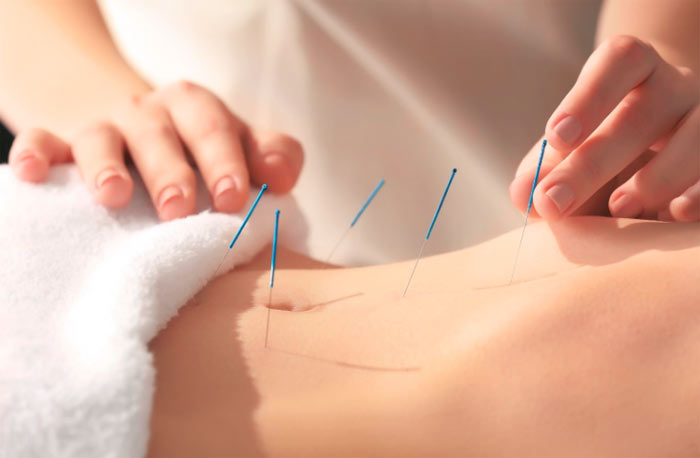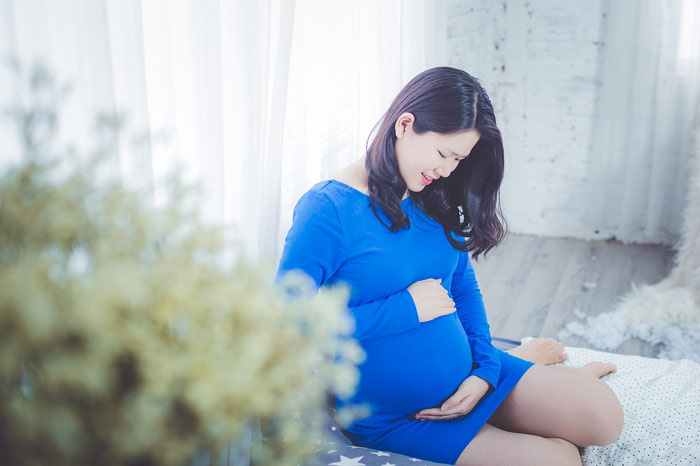There are few things in life that are as heartbreaking as the inability to conceive. Many fertility treatments are much too expensive for the average couple. The side-effects of fertility drugs can also be discouraging. The risk of conceiving a multiple pregnancy can be scary, too. Acupuncture has been shown to be an affordable, safe, and effective way to increase fertility without all the harmful side effects and risk.

What is Acupuncture?
Acupuncture is an ancient form of Chinese medicine that involves the stimulation of various energy points of the body. An ultra-thin needle is used to penetrate the skin at specific acupuncture points, unblocking the flow of energy throughout the body. Acupuncture is often used to treat chronic pain, stress, and many other health conditions. Diet and lifestyle changes, as well as Chinese herbs and bodywork (massage), are often used in conjunction with acupuncture treatments.
How Does Acupuncture Work?
Chinese medicine teaches that we have channels of energy that flow throughout our bodies. When that energy flow becomes blocked, illness can develop. Acupuncture works by releasing the flow of blocked Qi (energy) in the body.
What are the Risks Associated With Using Acupuncture to Increase Fertility?
According to the experts at AmericanPregnancy.org, there are very minimal risks associated with using acupuncture to increase fertility. Acupuncture is generally considered safe, as long as you go to an experienced acupuncture physician. Look for one that is licensed and specializes in treating infertility disorders.
How Can Acupuncture Increase Fertility?
The Pacific College of Oriental Medicine says that acupuncture can help to balance hormones and relieve stress. It also may increase the flow of blood to the uterus and ovaries, increasing the chances of ovulation. For men, acupuncture can increase the quality and count of sperm.
There are many conditions that can affect fertility. Here’s a look at how acupuncture can be used to treat these conditions in order to increase fertility.
 Amenorrhea
Amenorrhea
Amenorrhea is generally defined as the lack of a menstrual period. Acupuncture treatments can be used in conjunction with herbal remedies to regulate the menstrual cycle and increase the chances of ovulation. According to the doctors at the NYC acupuncture clinic, The YinOva Center, there are many types of amenorrhea. A customized treatment plan that includes changes to lifestyle and diet may also be recommended.
Endometriosis
Endometriosis is a condition where uterine tissue grows outside the uterus. It is a leading cause of heavy periods and pelvic pain. It can also affect a woman’s fertility. An acupuncturist will use a combination of acupuncture treatments and herbs to relieve pain, reduce inflammation, and improve blood flow to the uterus and ovaries. Specific changes in diet may also speed healing.
Irregular Periods
Irregular periods are a common problem for many women, making it difficult to track ovulation cycles. Hormonal imbalance is a common cause of irregular periods. Acupuncture, used in conjunction with Chinese herbs, is very effective at balancing hormones and regulating menstrual and ovulation cycles.
Recurrent Miscarriage
An experienced acupuncturist can help determine the cause of recurring miscarriage. Often, acupuncture and Chinese herbs can be used to treat imbalances that cause miscarriage and even prevent future miscarriages from occurring.
Stress Related Hormone Imbalance
The typical Western diet paired with a high-stress lifestyle and not getting enough sleep is a leading cause of hormonal imbalance and infertility. Stress can cause chemical changes in our bodies that can lead to an overproduction of certain hormones. Over time, this can lead to imbalances in the reproductive hormones that affect fertility. Acupuncture can work in conjunction with Chinese herbs to balance the hormones and increase blood flow to the uterus and ovaries.
Unexplained Infertility
The diagnosis of unexplained infertility is probably the most frustrating. Acupuncture focuses on the menstrual cycle and can improve infertility even when the cause is not known.
Ovarian Cysts and Polycystic Ovarian Syndrome (PCOS)
Cysts on the ovaries sometimes occur naturally, but they are often triggered by the use of fertility drugs. Ovarian cysts and PCOS can be very painful and can be a common cause of infertility. Women with these conditions often have irregular cycles and are not ovulating regularly. Acupuncture has been shown to be very effective at regulating menstruation and stimulating ovulation.
Uterine Fibroids
Women who suffer from uterine fibroids often exhibit no symptoms, but some experience painful, heavy periods, abdominal swelling, and pain during intercourse. Uterine fibroids are generally non-cancerous growths that grow on the wall of the uterus. Sometimes they can interfere with fertility. Chinese herbs and acupuncture can work on their own or alongside Western medical treatments to help treat uterine fibroids.
IVF and IUI Support
Acupuncture improves the success rate of IVF (In Vitro Fertilization) and IUI (Intrauterine Insemination) by increasing blood flow to the uterus and ovaries. It also relaxes the uterus while reducing stress and anxiety, all while combating the side effects of the fertility drugs.
 Male Factor Infertility
Male Factor Infertility
For about 40% of couples trying to conceive, male factor infertility is the cause. Acupuncture treatments can improve sperm count and motility. It can also treat certain immune problems that interfere with conception. These treatments may require at least 3-4 months to achieve results.
Decreased Ovarian Reserve
It is normal for a woman’s ovaries to release fewer viable eggs as they age, but for some women, this can happen while they are too young. It is also becoming more and more common for women to wait until later in life to have children. Either way, a lack of viable eggs can cause problems when trying to conceive. Acupuncture has been shown to help women with decreased ovarian reserve get pregnant.
Elevated Follicle-stimulating Hormone (FSH)
FSH is the hormone that triggers ovulation. FSH levels can rise as we get older, and higher levels of FSH can be a cause of infertility. Regulating FSH levels is also very important for the success of treatments such as IVF. Acupuncture, in conjunction with Chinese herbs, has been shown to be very effective at regulating FSH levels.
With more and more women over the age of 40 trying to get pregnant, there is an ever-increasing need for effective, safe, and affordable fertility treatments. Acupuncture has been shown to increase fertility in a non-invasive way with great success.










